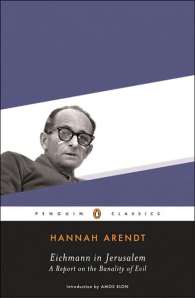Ron Chernow’s eponymously titled biography of Alexander Hamilton is nothing short of epic. At a brisk 731 pages (not including extensive notes and index), Chernow’s tome is not something to lug around in airports or while lounging on the beach. Nevertheless, Alexander Hamilton is a titillating read about one of our nation’s foremost founding fathers. And unlike his compatriots Washington and Jefferson, the academic work on the first secretary of the treasury is comparatively absent, which makes Chernow’s work more illuminating.
Alexander Hamilton was born on the island of Nevis in the West Indies to an unwed couple, forever casting the future founder as an immigrant bastard. Despite his humble origins, young Hamilton was able to secure passage to North America and attend King’s College (now Columbia University) in New York City. His studious years were spent assiduously arguing the colonies’ grievances against the tyrannical King George III. As war between Great Britain and the colonies erupted, men in greater situations saw talent in Hamilton and within five years of first arriving in America he became General Washington’s aide-de-camp throughout the American Revolution.
As Washington’s right-hand-man, Hamilton corresponded with the Continental Congress, fellow generals and field commanders, and anyone else who was needed to conduct the war. Though Hamilton endlessly prodded Washington for his own field command, the commander-in-chief needed Hamilton’s oral, written, and persuasive skills to help him conduct the war. Plus, Hamilton was fluent in French, a skill that also proved valuable in communicating with the marquis de Lafayette. Eventually Washington capitulated and assigned Lt. Colonel Hamilton a command during the Battle of Yorktown, where he fought valiantly and captured two redoubts.
Hamilton again proved invaluable to Washington when he served as the nation’s first secretary of treasury. Unlike the other cabinet members, Hamilton had exclusive access to the first president and was in a position to truly shape policy. As treasury secretary, Hamilton strengthened the federal government by having it assume states’ debts, by creating its first federal bank, by establishing a Coast Guard and by emphasizing the notion that a strong central government is vital for the fledgling nation to succeed. As the years grew, the bond between mentor and mentee tightened and Washington heavily relied on Hamilton for guiding the nation. Thomas Jefferson, secretary of state, grew disillusioned over Hamilton’s influential access and the two became bitter rivals, ideologically opposed to one another. While Hamilton believed that Jefferson’s de-centralized, states-rights’ philosophy would inevitably lead to anarchy, Jefferson accused Hamilton for either attempting to re-establish American colonialism under Great Britain or conspiring to engender a homegrown American monarchy. No evidence has surfaced to support Jefferson’s claims.
Hamilton’s confidence inspired many men to invest in his talents; it has also established bitter rivals. Newspapers in the 1790s had more in common with 21st-century blogs than 20th-century periodicals; they were loose on facts and heavy on gossip. Hamilton endured character assassination after character assassination because of his heavy influence in Washington’s administration. Since Washington was too revered to be the target of smear tactics, Hamilton bore the brunt of the Republicans’ verbal assault. Like the lawyer he was, Hamilton responded to these attacks the only way he knew; he refuted them in writing and exploited weaknesses in his opponent’s political philosophies.
Pride got the better of Hamilton in one career-defining instance. Hypersensitive of being accused of being a cheat or an embezzler, Hamilton was livid over accusations that he swindled the Treasury and stored funds for himself or, that he was funding a British uprising. His opponents supposedly held some evidence—covert payments to a Mr. Reynolds. The evidence proved less nefarious, though no less scandalous. Mr. Reynolds extorted money from Hamilton so that he would keep secret the affair that occurred between Hamilton and his wife. Eventually the cat was let out of the bag and Hamilton’s political career was forever tarnished.
Chernow vividly describes the infamous duel between Alexander Hamilton and the cunning Aaron Burr. Though Burr was just one of Hamilton’s many enemies, he felt especially scorned after losing the New York gubernatorial race. Though Hamilton’s influence was probably inconsequential, Burr blamed him for his loss. Additionally, Hamilton slighted Burr’s character in the presence of a Dr. Charles Cooper and stated he possessed an even more “despicable opinion” of Aaron Burr. Burr, wanted to reestablish his political career, sought revenge and challenged Hamilton to a duel. Hamilton reluctantly accepted, though secretly declared he was not going to aim and shoot at Burr. Burr had a different set in mind and shot Hamilton in the lower right abdomen. Hamilton died 34 hours after the duel on July 12, 1804.
Cherow’s Alexander Hamilton is exhaustive in scope and definitive in its detail on the first treasury secretary’s life. Ron Chernow successfully depicts Hamiton’s self-sacrificing contributions to the fledging years of the United States.







